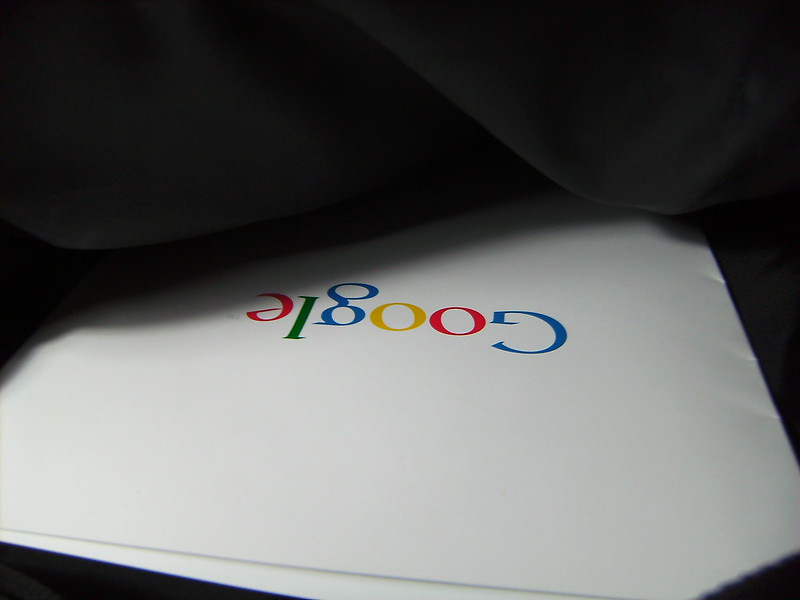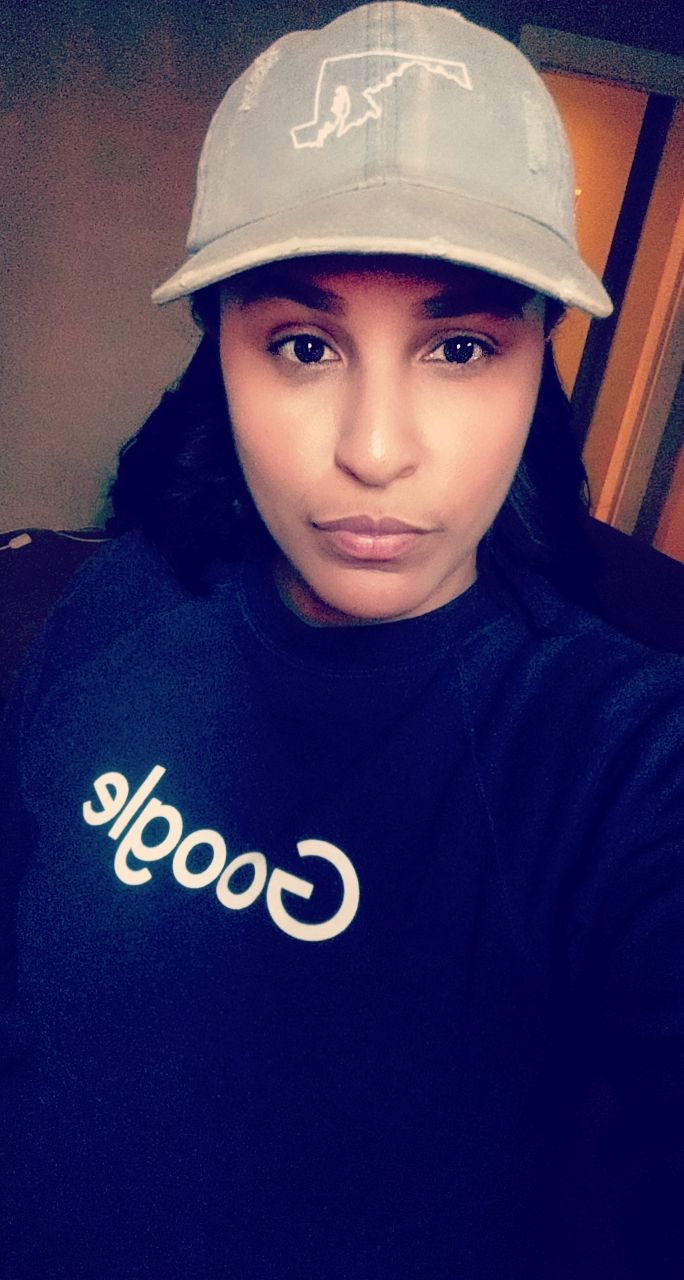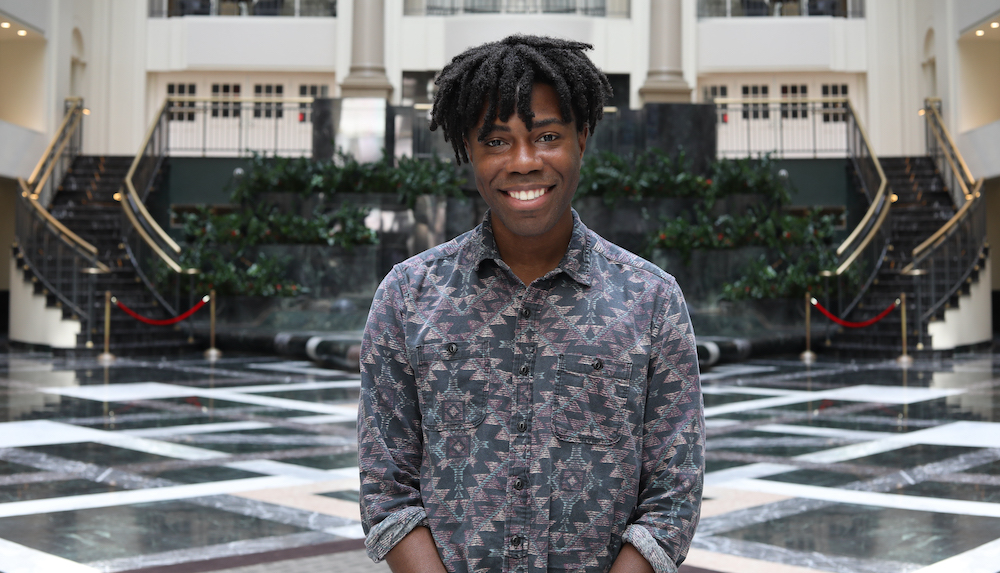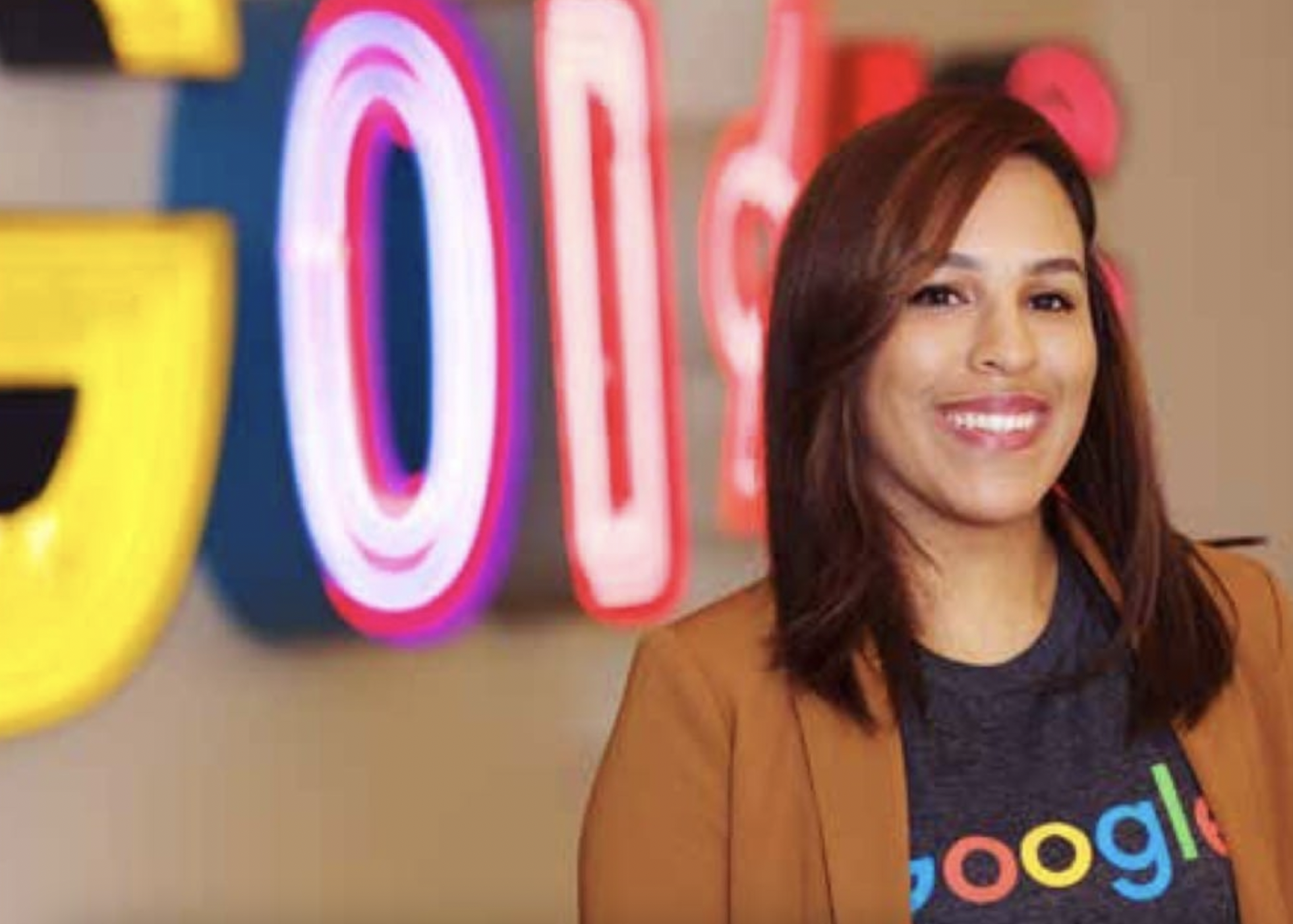A few days before Christmas, April Christina Curley decided to let all of the trauma go and start the new year fresh.
She spent 20 minutes drafting a Tweet thread in a Google doc, posted it, then went back to wrapping presents. When she came back to her phone, it was buzzing nonstop. Her story had resonated not only with Black people in tech, but the world.
The thread detailed Curley’s struggles as a diversity recruiter as she worked to bring more Black and Brown tech talent from HBCUs into the search giant, and her own experience facing discrimination from managers. The revelation that a manager told her she should disclose her Baltimore accent as a disability made headlines internationally. Google declined to comment on the specific claims of Curley’s experience to Technical.ly.
I'm finna tell yall why @Google fired me- their MOST successful diversity recruiter in the history of their company- with the receipts to support that statement.
— Real Abril🌈 (@RealAbril) December 21, 2020
It was the second bombshell in December detailing what it’s like to be Black at Google: Dr. Timnit Gebru, a co-leader of the company’s ethical AI research team, claimed she was fired because of internal emails she sent about diversity at Google. The stories from Curley and Gebru put faces and people behind the company’s self-reported spike in attrition among Black women last year, and illustrate underlying reasons that the number of Black employees at the company grew to 3.7% in 2020 from 2.4% in 2014, as well.
It begs the question: What’s happening at Google that’s making so many Black women leave?
‘We’re telling the world that we value diversity’
Rewind to 2014. Curley, who hails from Columbia, Maryland, was working on her master’s degree at John Hopkins and working at Teach For America, recruiting Black teachers in classrooms with majority Black students. Believing from her experience as a teacher in Baltimore that Black educators made a significant difference in Black students’ lives, Curley was in that role for three years. In that time, she became very familiar with Historically Black Colleges and Universities (HBCUs).
That work made her a coveted recruit for Google. The hiring process took all of three weeks, Curley said. In less than a month, she got an offer letter and moved to New York from Baltimore.
She was brought in to improve the Google in Residence program, where Google engineers teach for a semester at an HBCU. Over the years, because of the work of Curley and two other Black women, it became, in her words, “Google’s most accessible diversity recruitment program.”
But despite her success as a recruitment manager, the department never seemed to move in the direction she thought it should.
Over the course of six years, Curley had nine different managers: “People left, people got pushed out, people were promoted, people went on maternity leave,” she told Technical.ly. With every change in manager, her job description changed. It became clear to Curley her work “wasn’t really important to Google.”
With the constant turnover and decreasing resources, it was the company’s actions that were speaking louder than any words preaching diversity and equity.
Curley said there was acknowledgement that, “OK, there’s this HBCU work that needs to be done.” But then the conversation would turn into, “Let’s figure out essentially who can be my manager in a way that doesn’t ask for too many resources or doesn’t ask for an increased budget year over year,” Curley said. “Do more with less, essentially.”
By the ninth manager, Curley had almost 10 years working with HBCUs and six years doing that work with Google. She felt she had the most expertise of anyone in the room regarding what works and what doesn’t in recruiting and retaining Black talent. When she saw strategies being implemented that didn’t serve Black and brown students at HBCUs, she would push back.
“We’re telling the world that we value diversity, but when it comes to what you’re asking me to do [as a recruiter] it’s not aligning,” said Curley.

In December, two Black women spoke out about treatment at Google. (Photo by GuillermoJM)
In the wake of last summer’s George Floyd protests, Curley and 11 other Black staffers in Google’s university programs got together to form a work group and address the issues they were seeing, including a lack of promotions among Black employees, lack of clarity in job description and need for more focus on retention. All of this was outlined in a leaked letter to Google Director of People Operations Kyle Ewing in June of last year, as reported by CNBC.
Publicly, Google made a series of commitments that month. It set a goal of hiring more Black people in senior positions, saying in June it wanted 30% of leadership positions to be from underrepresented groups, and said it would “do more to address representation challenges and focus on hiring, retention, and promotion at all levels” and “create a stronger sense of inclusion and belonging.”
‘Folks are afraid to work with you’
It was against this backdrop that Curley’s infamous meeting her skip-level manager — her manager’s supervisor, in Google parlance — occurred. Curley said was told by the manager, a white woman, that she should disclose her Baltimore accent as a disability before she meets people so they won’t be intimidated.
The conversation started with Curley — a 5’2″ former cheerleader — trying to unpack why her skip-level manager felt she was intimidating to people in the office.
“She thought she was giving me advice. She thought she was coaching me,” said Curley. She paraphrased what her manger told her: “‘I feel like the way that you speak is harsh. It’s a turnoff to others. Folks are afraid to work with you, essentially.’”
Curley continued to probe the idea that her way of speaking was so aggressive that a manger is getting feedback that she’s scary to work with. She asked, was it because she was direct, assertive, passionate? It was all in an effort to make it make sense.
This particular manger has a disability, Curley said: She has limited vision and she discloses that to everyone she meets. Eventually, the skip-level manager broke it down in a way she thought Curley could understand.
“She says, ‘April, I think that you need to disclose upfront when you talk to somebody, whether it’s somebody internally or an external partner — the way that you speak the way you do, is because of where you come from. I disclose my disability when I talk to people that don’t know me for the first time because I don’t want them to think that I’m being a bitch if I can’t look them in the eye or I’m not looking at them directly,’” said Curley.
It was a shock. She knew something was off but, in the moment, there were a lot of emotions to process. There was the label of being the angry Black woman, and the ask to disclose in and of itself. Mix that in with it being delivered as advice, and it was a lot to unpack. So, Curley went to her workgroup of 11 other Black people at Google and outlined the conversation.
“My teammates were able to help me really understand the ignorance that happened in that conversation,” said Curley. It was, she said, “the fact that she really conflated the way that I speak and how I present to a disability, very similar to the way that she said she discloses her disability when she meets somebody new, so that they’re not turned off from her.”
Google declined to comment on the specifics of Curley’s claims. A spokesperson said, “We are absolutely committed to maintaining an inclusive and supportive workplace.”
When Google hired Curley, they told her to come as she was. It’s well known that the number-one mistake you can make at an interview for Google is come in a suit. Not needing to play respectability politics was one of the reasons Curley thought Google was an attractive offer.
“I never code-switched” at Google, said Curley. (For the uninitiated, that’s toning down your Blackness so others can feel more comfortable. It’s saying, “Hand me that thing,” when you would have said, “Hand me that jawn.” It’s being quiet when you would have been loud, changing the timbre of a voice to become soft spoken and not appear angry or hostile, or not talking too much with your hands, if at all.)
“I’m tired of code-switching. I did that for a long time at Teach for America,” she said. “When I joined Google and they sold this, ‘You can bring your whole self to work,’ I leaned into that. For most people, they were able to accept that, but [for] the white women that I came across, that said ‘April is hard to work with.’ That ‘April is aggressive.’”

“I never code-switched,” said April Christina Curley. (Courtesy photo)
‘They just need to be held accountable’
Curley said squaring her experience with discrimination at Google with her job recruiting students from HBCUs was an internal conflict. It was a constant exercise in weighing the risk versus the reward. Often, Curley had to bottle up that she was having a bad experience at Google.
“I as a Black employee know what it feels like to be Black at Google and to have to sell that to students and have an internal conflict where you have to weigh the pros versus the cons,” said Curley. “Am I bringing Black and Brown kids into a space that they’re not going to be protected and embraced? If I believe that to be true, then do the pros outweigh the cons?”
Those pros? The sizable pay, the prestige that working for Google brings and valuable skills on the technical side. All of these things change lives and life trajectories.
“They were asking me to fill a leaky bucket,” said Curley. “No matter how many Black and brown students I was able to get hired at Google, Black people were leaving Google at faster rates.”
The rate that Black and Latinx women and men leave Google remains higher than the average employee. Black women had a spike in attrition by 18 percentage points last year, putting it above average, according to Google’s 2020 diversity report.
A Google spokesperson told Technical.ly the company “has a large team of recruiters who work incredibly hard to increase the hiring of Black+ and other underrepresented talent at Google, including a dedicated team that partners and strengthens our relationships with HBCUs.” The company said that in 2019 it “welcomed graduates from 19 HBCUs and over the past decade, we’ve expanded our recruiting efforts to more than 800 schools.”
Curley’s story has gotten the attention of HBCU leaders. On Jan. 29, CEO Sundar Pichai is set to meet with the presidents of at least five HBCUs, CNN reported.
They were asking me to fill a leaky bucket. No matter how many Black and brown students I was able to get hired at Google, Black people were leaving Google at faster rates.
If there is to be change, Curley feels there needs to be an overhaul of the hiring, promotion, training and support processes for managers.
“It’s the mid-level employees and strategies that oftentimes impact Black and brown people the most,” said Curley. “Most of the grievances that my kids have told me [about], whether they be an intern or full-time at Google, 98% have been with their manager.”
The complaints: A manager is not equipped to support them, talks down to them, has been condescending and treats them unfairly. This was the trend Curley saw in mid-level management at Google. By the end of Curley’s tenure, she was added to that spiking 2020 attrition number.
“I never formally reported anything that I saw that was happening in the recruitment process, but I absolutely reported managers,” said Curley “The last six months of my time there, [Google] wanted a way out of having me be the constant dissenter.”
After she reported her last manager to HR, her manager, the supervisor for her manger and HR decided to put Curley on a performance improvement plan. Halfway through the 30-day plan, Curley asked if they were leaning towards firing or not firing her. A few days later, she was on a phone call about terminating her employment, locking her out of her work emails, effective immediately.
“To be quite honest I don’t want anything from Google,” said Curley. “They just need to be held accountable.”
Donte Kirby is a 2020-2022 corps member for Report for America, an initiative of The Groundtruth Project that pairs young journalists with local newsrooms. This position is supported by the Robert W. Deutsch Foundation.Join the conversation!
Find news, events, jobs and people who share your interests on Technical.ly's open community Slack

Baltimore daily roundup: An HBCU innovation champion's journey; Sen. Sanders visits Morgan State; Humane Ai review debate

Baltimore daily roundup: Medtech made in Baltimore; Sen. Sanders visits Morgan State; Humane Ai review debate

Baltimore daily roundup: The city's new esports lab; a conference in Wilmington; GBC reports $4B of economic activity


